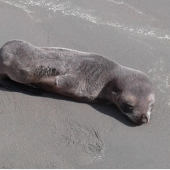
Abstract: Early childhood educators emphasize that outdoor education learning outcomes are very important for preschoolers because early childhood education has a huge effect on the later stage of adulthood. Outdoor education can take place on playgrounds or in natural environments. The aim of this study was to determine some effects of an unstructured outdoor activity on preschoolers. A qualitative case study methodology was used in order to assess the effect of a bush explorer activity on children. In terms of establishing the research’s reliability, the qualitative analyses were supported by the triangulation data collection methods, which included non-participant observation and parents’ interviews. Content analysis was used in order to evaluate the data. According to the results, eleven different themes were determined: Problem solving, self-confidence, environmental awareness, observing and exploring, friendship and social skills, creativity, sharing experience, relaxing, having fun, conflict, and rejection. All themes, except conflict and rejection, are coherent with the literature.
Continue ReadingAbstract: I was slow in coming to see the desperate need of sustainability education, in part because of a missed opportunity in my field of outdoor adventure education (OAE). Although a burgeoning set of scholars agree that OAE is strategically placed to educate for sustainability, little change within our discipline has occurred. To encourage the transition, this paper has four central aims. First, I contextualize the implications at stake by summarizing recent scientific predictions around climate change. Second, I differentiate sustainable OAE into the sustainability of OAE (e.g., its practices, footprint size, etc.) and OAE for sustainability (e.g., curricula that promotes education about sustainability), noting that despite long-standing petitions to address both, progress has been made in neither. Third, I celebrate, with others, the inherent potential that OAE has to promote sustainability through its educating in natural environs, within living/learning communities, which utilize physical/sensory, affective and intellectual ways of knowing that inspire critical impulses. Fourth, I outline the central changes that need to occur in order to create sustainable OAE. The foremost change needed is for OAE programs to curricularly commit to promoting a sustainability worldview, including values, knowledge, dispositions, and agency related to environmental, social, and economic justice. However, change of this depth will require a revision of OAE course offerings that allow for multiple and prolonged participant engagement over time. Such engagement, then, necessitates that OAE shift its emphasis from remote and sublime landscapes, to programs that not only connect participants to the places in which they reside, but cultivate a care and affection for them. This appreciation can be created through a combination of adventurous learning and microadventures. In sum, “local landscapes, far more often, as a way of life” encapsulate the changes OAE might make in contribution to the global need of sustainability.
Continue Reading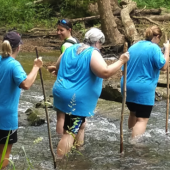
Abstract: The purpose of this article is to provide key aspects and learning outcomes associated with the Math of the Mountains Project. Math of the Mountains was a year long grant project that engaged 60 K12 mathematics teachers in the key concepts and applications of place-based learning and mathematics instruction. Through online coursework and peer support, a four-day immersive field experience, and teacher led field experiences, participants applied elements of PBL to create lesson activities that support real-world learning and problem solving scenarios.
Continue Reading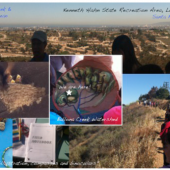
This postcard is inspired by my dissertation research at the Kenneth Hahn State Recreation Area and Ballona Wetlands in Los Angeles. I spent many months observing student tours and frequently was struck by many of the reactions and observations I mentioned in my postcard.
Continue Reading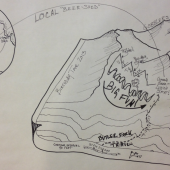
The socioecological challenges we face have never been so complex, so intractable, and so urgent. And while both justice-oriented education and education for sustainability are growing in colleges and universities across the United States, normative perspectives of outdoor experiential education have fallen embarrassingly behind. In this paper, we offer critical sustainability as a conceptual basis for engaging students in the beauty, perversity, and complexity of our world. Critical sustainability, integrating sociopolitical systems of privilege and oppression with the socioecological imperatives of global health and justice, provides an exciting and promising pedagogical direction. With this conceptual framework, we explore perspectives of “nature,” placefulness, and our multiple, overlapping subjectivities as students, educators, and engaged citizens. Our task as outdoor educators is to bring the faraway nearby and inspire students to engage in the myriad challenges we face as individuals, citizens, and as members of a global ecological community. We conclude by offering place mapping as a pedagogical technique to support elements of critical sustainability in outdoor education settings and beyond.
Continue Reading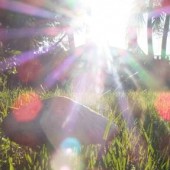
Jack Turner (2005) once wrote “we treat the natural world according to our experience of it.” How are our students “experiencing sustainability” in U.S. colleges and universities? With the rise in popularity of education for sustainability initiatives in both K-12 and higher education, experiential education has been championed as a key pedagogical approach moving forward. Experiential curriculum projects come in many different forms. From outdoor education and service learning to so-called “hands-on” applied work on campus projects and field science research, students are increasingly “learning by doing.” Yet far from just another methodology to be used in the classroom, the rise of experiential approaches indicates deeper tectonic shifts in higher education. As students and faculty engage in this form of learning, questions are raised as to the historic divide between theory and practice, the separation between so-called “town” and “gown” cultures, the curriculum and the co-curriculum, and what forms of knowledge and skills are of the most worth to a 21st century graduate. This analysis first briefly surveys the theoretical history of experiential education before proceeding to consider two specific curriculum projects at the intersections between sustainability and experiential education—place-based learning and project-based learning. The analysis concludes with a discussion of the possibilities and limitations of current forms of experiential education in higher education and a consideration of future trends and developments.
Continue ReadingRecognizing that behavior comes not only from understanding, but also from attitudes cultivated in outdoor settings that elicit visceral feelings toward nature, outdoor educators have unique opportunities to make sustainability comprehensive, accessible, and relevant. Yet the principal metaphor underlying outdoor education in general, and the Leave No Trace (LNT) program in particular, may be counterproductive to fostering environmentally and […]
Continue Reading